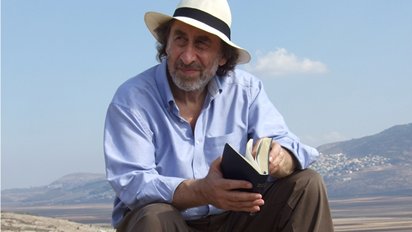French genocide denial law is an insult to memory of Hrant Dink
With grim symmetry, French politicians are preparing to debate a law criminalising denial of the Armenian genocide just five years after the murder of Turkish-Armenian editor Hrant Dink.
Dink, editor of Agos was passionately opposed to laws restricting discussion of what happened to thousands of Armenians in 1915. In Turkey, it was illegal for him to describe the events as genocide. In France, they hoped to make it illegal to say it was not. When this law was first mooted in 2006, Dink commented:
“When this bill appeared first, we were fast to declare as a group that it would lead to bad results…As you know, I have been tried in Turkey for saying the Armenian genocide exists, and I have talked about how wrong this is. But at the same time, I cannot accept that in France you could possibly now be tried for denying the Armenian genocide. If this bill becomes law, I will be among the first to head for France and break the law. Then we can watch both the Turkish Republic and the French government race against eachother to condemn me. We can watch to see which will throw me into jail first…I really think that France, if it makes this bill law, will be hurting not only the EU, but Armenians across the world. It will also damage the normalising of relations between Armenia and Turkey. What the peoples of these two countries need is dialogue, and all these laws do is harm such dialogue.”
Genocide denial is not a simple issue of differing versions of history; it is a calculated insult, a degeneration of a people’s memory and history. Ultimately, it is calculated to exterminate a people by other means. As novelist Howard Jacobson put it in a magazine in 2009, addressing attempts to downplay or deny the Jewish Holocaust:
“[O]ne day, if they have their way, whoever they are, these people, there will be no Holocaust either. No Holocaust. No Israel. No Jews.”
A similar impulse is at play with the use of Turkey’s Article 301, which outlaws “insulting Turkishness”. The law is used against Kurds and Armenians, because in the Kemalist vision that shaped the country, there are no Kurds or Armenians. There are only Turks, united in a single vision and a single story.
This impulse is unexceptional, particularly in 20th century nationalism. As empire disintegrated, projecting a single vision became important. In this way, Turkish “genocide denial” may be different from Holocaust denial, driven by fierce nationalism alone, rather than the combination of nationalism, classic and modern anti-Semitism and paranoid conspiracism which drove the Holocaust. But both are driven by distrust of the other, and by seeing diversity and cosmopolitanism as stumbling blocks on the path to perfection.
But while the two may differ, there is no difference in the free speech argument on laws covering them. Proscribing speech —whether it confirms or denys historical truths — is an offence to history, a barrier to dialogue and an insult to memory.

